Todd Fernando has a powerful voice for change
The 33-year-old Wiradjuri man doesn’t take his appointment as Victoria’s first Commissioner for the LGBTIQ+ Community lightly.
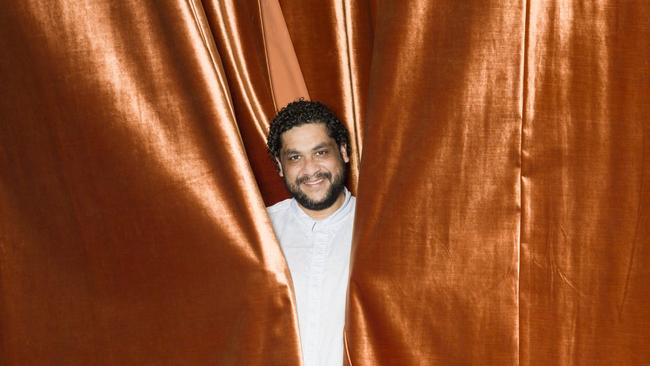
Todd Fernando, Victoria’s Commissioner for the LGBTIQ+ Communities, has a theory: queer people have a tendency to come out to their family, friends or loved ones while in they’re in the car. Something about the feeling of closeness and the familiar safety that makes it conducive to sharing something about yourself when you’re unsure how the other person will take it.
“Like many others, I came out in a car,” he tells WISH. “I was driving the car, actually, and I think for me it was like, we can’t escape, nobody can jump out, I’m in control. So we were driving in the car, Mum was sitting in the passenger seat, and I just said, ‘Hey, Mum, I have a friend who’s a little bit more than a friend. And they’re a guy’.”
While Fernando admits that his mother wasn’t all that surprised at the news – “I think most parents know the sexuality of their children, so she was proud that I was able to share that with her” – he goes on to recall that the most important part of the experience wasn’t necessarily about him, but about his sister.
“My little sister was sitting in the back seat and I looked in the rear vision mirror to see her reaction, and she just was looking out of the window and didn’t really react in any way. A few years later, however, she came out as a lesbian. So for her to witness me coming out first allowed her, I think, to feel a little bit safer in her own journey.”
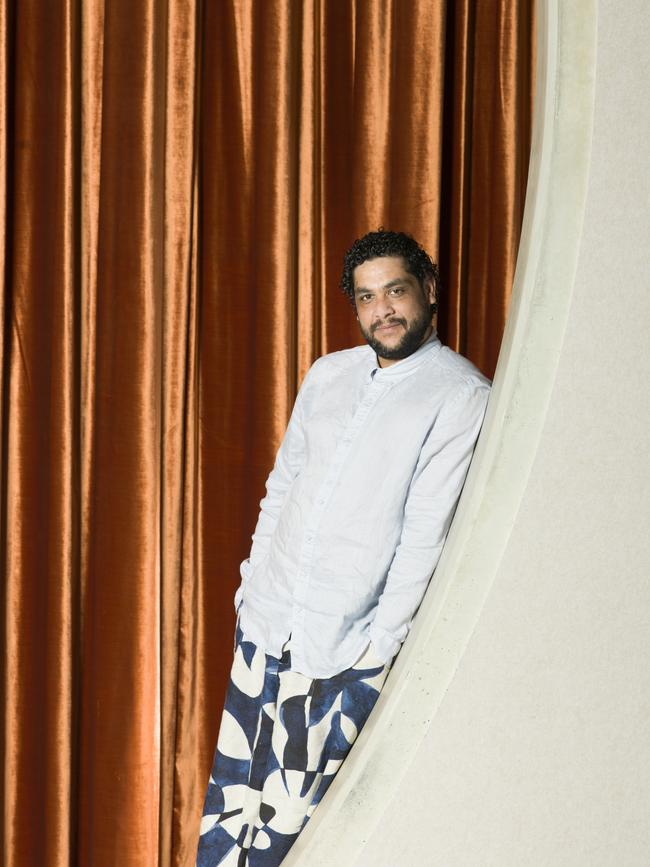
On paper, Fernando’s life is a series of firsts. He was the first person in his family to come out publicly as gay. He was the first person in his family to graduate from high school and the first to go to university. He’s also the first openly queer, First Nations person to be named as Victoria’s Commissioner for the LGBTIQ+ Communities, Australia’s only Commissioner for the LGBTIQ+ Communities, if we want to be precise.
“I’m the first Aboriginal person to hold a non-Aboriginal commission and the first mainstream Aboriginal commissioner. And obviously, the first openly gay and Indigenous commissioner and/or senior public servant in the country,” he says.
At 33, Fernando is also one of the youngest people, if not the youngest, to be named commissioner in Australian history. It’s an achievement the Wiradjuri man and descendant of the Kalarie people takes neither lightly nor for granted. “I still pinch myself every day that I’m in this role,” he says.
“I’ve got to remind people I’m only 33. I am very young, and I look to other commissioners who have a couple of decades of work on top of me and who are at the top of their game. So I pinch myself, because it’s a moment of reflection on how far we’ve come as a country, where we can have an Aboriginal person lead for a community that isn’t Aboriginal by and large.”
It took some time, says Fernando, for the reality of his position to sink in. “I remember very early on in the role, I think it was week one or two, and I was sitting in a meeting and somebody was saying, ‘We need to do something around…’ whatever policy setting. I’m sitting there thinking, ‘Oh my God, somebody needs to do something about this.’ And then I realised that somebody was me.”
That it took until 2021 to create a role of this nature – and in only one state, Victoria – feels a little shocking. For his part, Fernando sees it as a sign that things are moving in the right direction.
-
“It’s something that you see communities who walk through the doors – their shoulders relax when they look around at a space that is designed for them.”
-
When Premier Dan Andrews appointed him to the role, it was with a long-term vision of representation for the Victorian LGBTQ+ community. Part of which, says Fernando, was a global-first whole-of-government LGBTQ+ strategy called Pride in Our Future. This landmark 10-year plan explores how the government will continue to make Victoria more inclusive by changing laws and policies and strengthening state-based services, and providing strong support for LGBTQ+ organisation events and initiatives.
More immediately, it saw the opening of the Victorian Pride Centre, Australia’s first purpose-built community hub for LGBTQ+ communities, in St Kilda, back in July 2021.
“The Andrews Labor Government invested more than $25 million to deliver on the Centre, which is one of the biggest of its kind in the world,” says Fernando. “It’s an incredible facility that allows communities to come together, and to sit, and to be in a purpose-built space. I had the opportunity, alongside Premier, Daniel Andrews, to open that Centre and it is something that I will always remember … It was just an incredible moment, to have both a Centre and also a strategy that centres the lives of LGBTIQ+ people in ways that we’ve never had before.”
The importance of community, in all its manifestations, whether that be social, cultural or family, is something that is a powerful driver for Fernando. And its absence, he says, something that many LGBTQ+ youth can feel, is equally powerful. It’s a story that many gay or queer people could tell you as if it’s scripted – that dawning sense of otherness and subsequent withdrawal that comes as you begin to realise maybe you aren’t quite fitting the same mould as your peers.
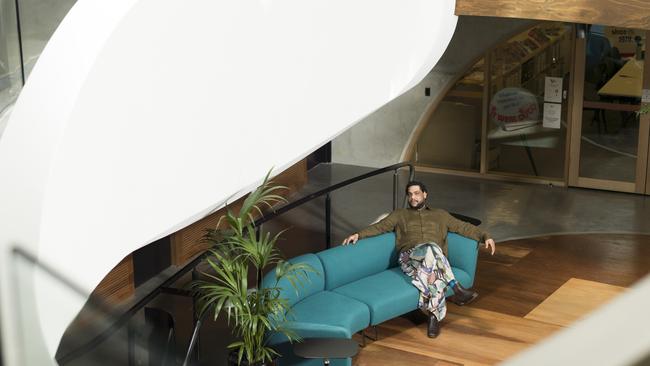
For Fernando, that moment came while playing a sport he loved. “I played rugby quite a lot growing up in NSW, and really loved the sport,” he says. “And when I was around 13 or 14, I began noticing the types of discussions that would happen in a locker room, particularly around queerness, or the use of the term gay as a derogatory term. That’s where I realised, ‘Oh, this is not an environment that is safe or healthy for me.’”
This experience saw the teenage Fernando walk away from a sport he loved. The flow-on effect was that it also put to an end its social element, not just for him but for his immediate family. “My mum used to cut up oranges on a Sunday and watch us play, hang out with other mums. Now she couldn’t do that anymore because I had left the sport.
“Today, that still affects me the most, because it meant that Mum couldn’t hang out with other parents and build that community relationship with other members of the sporting group. And so the impact of a comment inside the locker room exposed the breakdown of the way communities can come together. And that still is apparent today, I think.”
The Centre, says Fernando, provides a potential safe space he hopes can counter that sense of loss that can come from these experiences. Not just for queer people but for their close ones, who can feel an extension of that withdrawal. “It’s something that you see communities who walk through the doors – their shoulders relax when they look around at a space that is designed for them.”
It is, Fernando says, one step in the right direction in addressing just some of the prejudices that exist in Australian society. “I think it’s useful to remind ourselves that we all face a system of oppression that operates in a different way.”
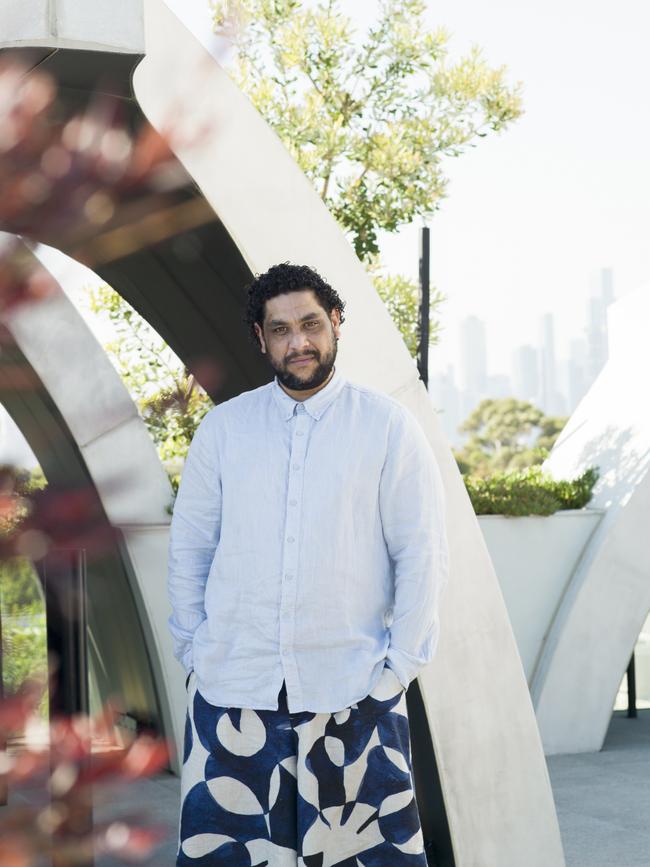
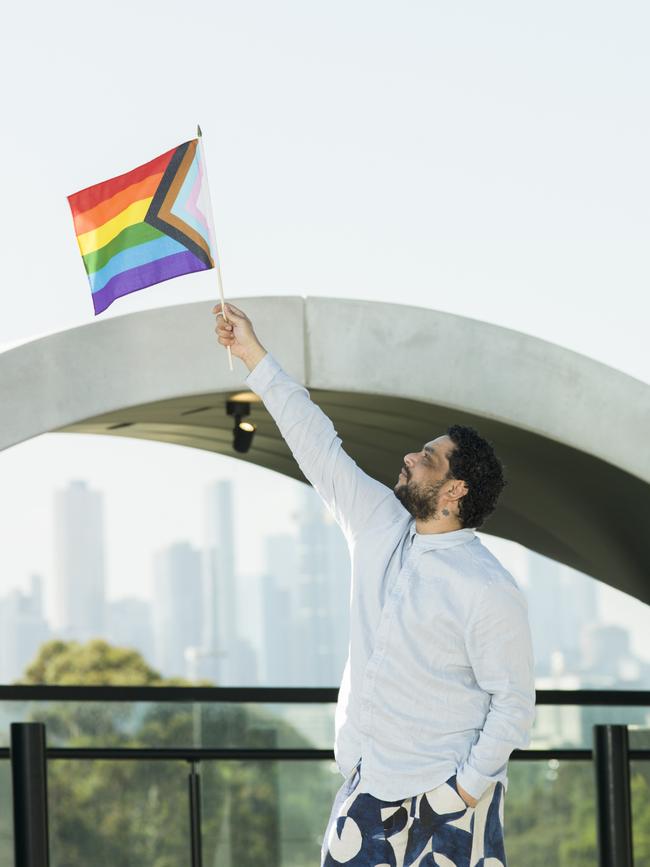
This system, he says, is one that goes all the way back to 1788, and one that continues to particularly affect the LGBTQ+ people within Indigenous communities. It’s a topic he is familiar with, not only from his own perspective but from an academic one as he explored it for his PhD. “I think it’s useful to remind people that colonisation in Australia was never really just about land and access to land, but it also meant access to body autonomy and the ideas around gender and sexuality.
“For many Aboriginal LGBTIQ+ people who find themselves in family units or community groups that don’t accept their LGBTIQ+ status, that is an impact and a direct consequence of colonisation … I think reconciliation, both within a First Nation sense and a multicultural sense, will always be an ongoing project.”
It’s also something he thinks white gay men in Australia are becoming more aware of. It’s been said by culture writers and critics that often the definition of a queer space is by default a white space. As recently as 2019, Melbourne’s Poof Doof party was forced to apologise after it was revealed to have told event photographers to not take or display photos of “Indis” (Indigenous Australians). The marriage equality vote was an example of how the community can come together for a cause, and Fernando hopes this fight can continue for others within the LGBTQ+ community. “I think in 2023, and as we move forward, the challenges of white gay men have largely been met, and have largely been responded to. The call, I think, for all of us moving forward, particularly for those white gay men, is to continue to fight for equality for those who might not look like you.”
One area in particular is the safety and recognition of the trans community, which has increasingly become a target in the political sphere. Recent outbursts from the conservative end of the spectrum, and even radical offshoots within the gay and lesbian community, have highlighted how much is still yet to be done with educating about the reality of trans experiences.
“I think one of the things I have noticed is that, while we accept that racism and homophobia is unacceptable, we somehow still find acceptance for transphobia, and in part even biphobia,” says Fernando. “I think those are the things that really do a lot of damage to people, because they witness how people can say, ‘Oh, no, racism is wrong. But I’ll accept transphobia.’ It’s a conundrum that people need to realise is really wrong.”
Looking forward, Fernando’s hope is to see Victoria’s – and Australia’s – LGBTQ+ community become one that is supported with the same safeguards and sureties afforded to other communities. To simply be allowed to exist and be happy, he says, is all anyone wants.
“It was the title of my PhD thesis, A Desire to Flourish,” he tells WISH. “We all have a desire to flourish, and some of us don’t flourish, and that’s because the system is set up for that not to occur. And in my role as commissioner for LGBTIQ+ communities, I’m looking at those systems that don’t allow us to flourish, and I’m calling for the change to occur.
“That’s how lucky we are in Victoria and in Australia to have such a role that will continually push back against the system that doesn’t allow people to flourish.”
This story appeared in The Pride Issue of WISH, which celebrates the game-changers who are shaping Australia into a more diverse and inclusive society.



To join the conversation, please log in. Don't have an account? Register
Join the conversation, you are commenting as Logout